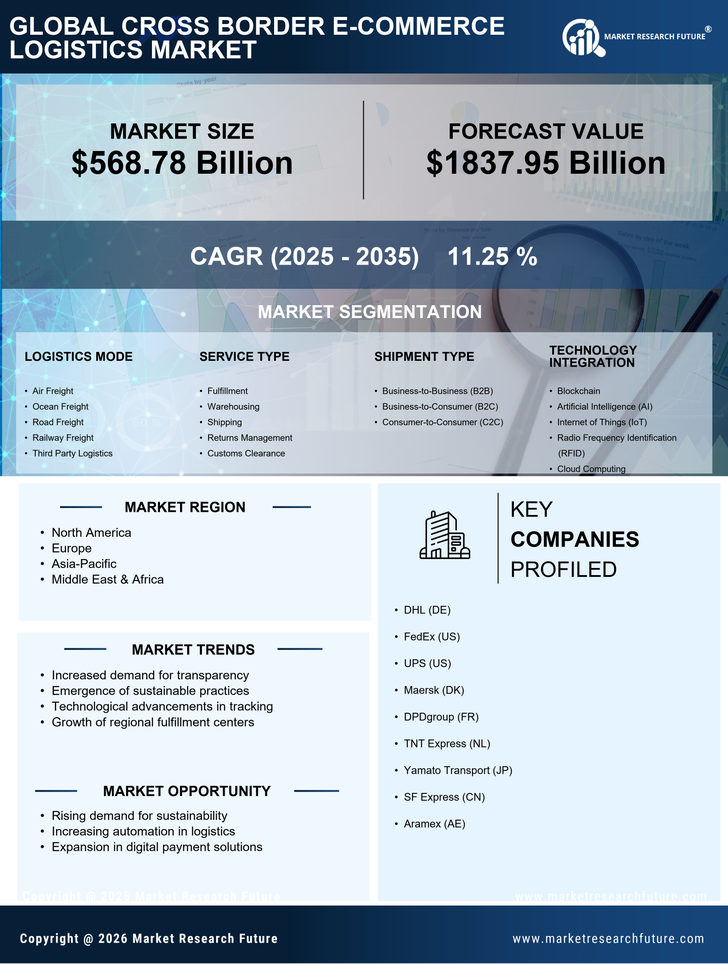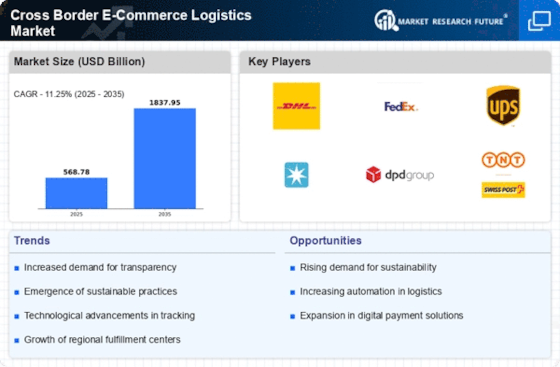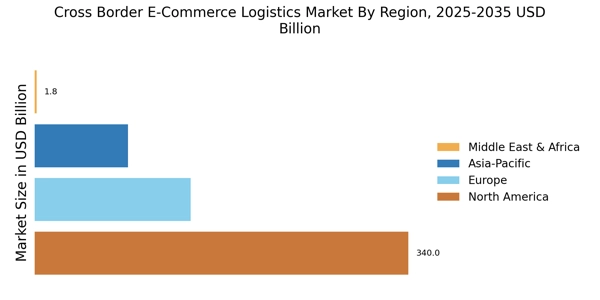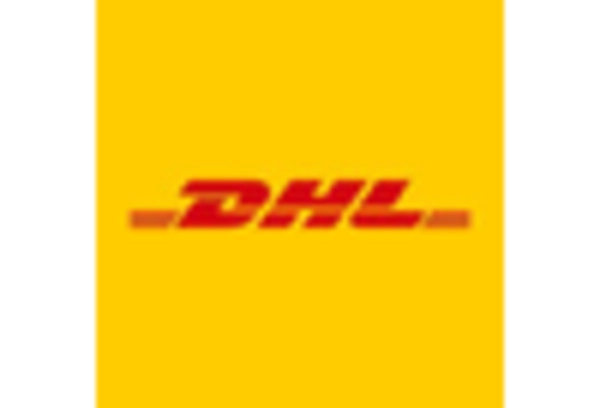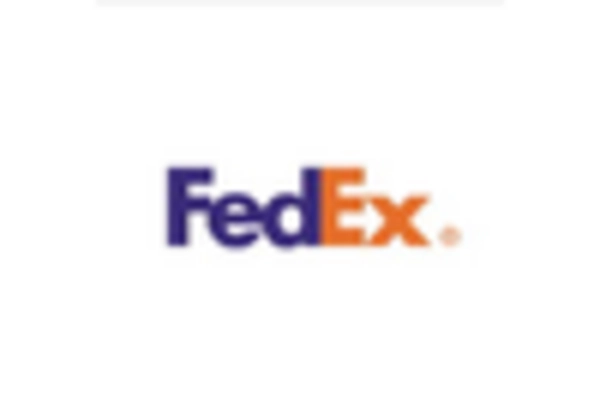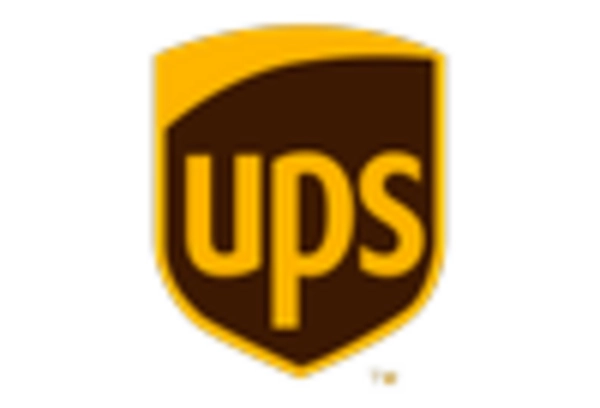Focus on Sustainability
Sustainability has emerged as a crucial driver in the Cross Border E-Commerce Logistics Market. With growing awareness of environmental issues, consumers and businesses alike are prioritizing eco-friendly practices. Logistics providers are increasingly adopting sustainable practices, such as optimizing delivery routes to reduce carbon emissions and utilizing electric vehicles. According to recent data, companies that implement sustainable logistics solutions can reduce operational costs by up to 20%. This focus on sustainability not only meets consumer expectations but also positions logistics companies favorably within the competitive landscape of the Cross Border E-Commerce Logistics Market.
Rising E-Commerce Demand
The Cross Border E-Commerce Logistics Market is experiencing a surge in demand driven by the increasing popularity of online shopping. As consumers become more accustomed to purchasing goods from international retailers, the need for efficient logistics solutions has intensified. In 2025, it is estimated that cross-border e-commerce sales will reach approximately 1 trillion USD, highlighting the potential for logistics providers to capitalize on this trend. This growing demand necessitates innovative logistics strategies to ensure timely and cost-effective delivery, thereby propelling the Cross Border E-Commerce Logistics Market forward.
Technological Integration
The integration of advanced technologies is a pivotal driver in the Cross Border E-Commerce Logistics Market. Technologies such as artificial intelligence, machine learning, and blockchain are being increasingly adopted to enhance operational efficiency and transparency. For instance, AI-driven analytics can optimize supply chain management, while blockchain can provide secure and traceable transactions. As logistics companies invest in these technologies, they are likely to improve their service offerings, thereby attracting more businesses to utilize their services. This technological evolution is expected to reshape the Cross Border E-Commerce Logistics Market significantly.
Expansion of Trade Agreements
The expansion of trade agreements is a significant driver influencing the Cross Border E-Commerce Logistics Market. As countries negotiate and implement trade agreements, barriers to international trade are reduced, facilitating smoother logistics operations. For example, recent agreements have led to lower tariffs and streamlined customs processes, which can enhance the efficiency of cross-border shipping. This environment encourages businesses to explore international markets, thereby increasing the demand for logistics services. Consequently, the Cross Border E-Commerce Logistics Market stands to benefit from these favorable trade conditions.
Consumer Preferences for Fast Delivery
In the Cross Border E-Commerce Logistics Market, consumer preferences are shifting towards faster delivery options. As competition intensifies among e-commerce platforms, the expectation for rapid shipping has become a critical factor in customer satisfaction. Studies indicate that nearly 70% of consumers are willing to pay extra for expedited shipping, which compels logistics providers to enhance their delivery capabilities. This trend not only drives innovation in logistics solutions but also encourages partnerships between e-commerce platforms and logistics companies, thereby fostering growth within the Cross Border E-Commerce Logistics Market.
